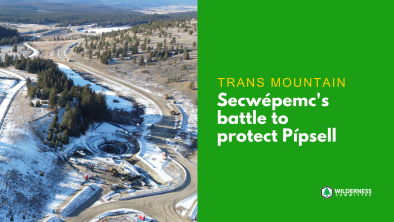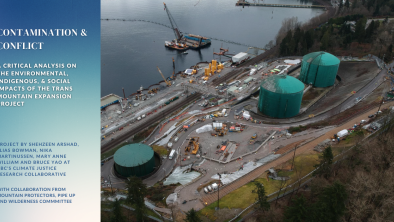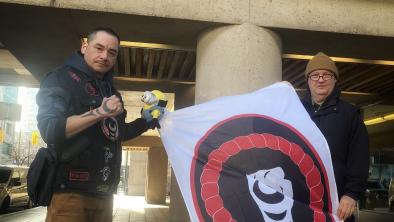Pipeline project cost estimates soar
Radio Canada International

A new potential problem has arisen for the long-controversial Trans-Mountain pipeline project. That problem is an estimated 70 per cent increase in the cost.
The some 1,000 kilometre pipeline project will twin a nearly seven decades old existing line from Edmonton Alberta, to a terminal at Burnaby. British Columbia on the Pacific coast. The line would triple the amount of bitumen shipped, involve an enlargement of the terminal itself, and likely increase tanker traffic off the coast sevenfold in the tricky waters of the Straight of Georgia between the mainland and Vancouver Island..
The new estimated cost for the line is $12.6 billion, a vast increase from original estimates of $7.4 billion.
In 2018, the Liberal government of Justin Trudeau spent $4.5 billion of public tax money to buy the line from Kinder-Morgan when protests caused delays and the company said it was abandoning the project.

Depending on calculations and what is included or excluded, such as a federal $600 ‘contingency” fund, the new cost will be around $16 billion.
Criticism of the new cost estimates came quickly. Peter McCartney of the environmental group, Wilderness Committee said in a press release, “Canada’s largest fossil fuel subsidy just got way more expensive. How much do costs need to skyrocket for Trans Mountain before Prime Minister Trudeau admits Big Oil is extorting the public and cuts our losses?”
He then added, “With over $16 billion we could build transit infrastructure projects in every major city in Canada or build renewable energy in rural communities across the country,” said McCartney. “There is so much work to be done to combat the climate crisis but instead the government is borrowing money to make it worse.”
Liberal Minister of Finance, Bill Morneau, said in a statement following news of the huge cost increase that the project remains viable and “The Trans Mountain Expansion Project will be an important driver in Canada’s transition to a cleaner economy” insisting that tax revenue from the project and its eventual sale will go towards clean energy projects.
In addition to attacks on the project’s greenhouse gas emissions, and oil spill risks from the pipe and tankers, opponents also say it will be a money loser with unproven Asian markets adding that the world is slowly moving away from oil energy as well.
A federal court ruled against First Nations opponents this week, clearing another legal hurdle for the project, but that may not be the end as the case could head to the Supreme Court. Some Indigenous groups along with other environmental protesters have also said they might have to resort to civil disobedience in their effort to stop the line.
The project completion is now set for December 2022.
Read the original article published by Radio Canada International by clicking here.


